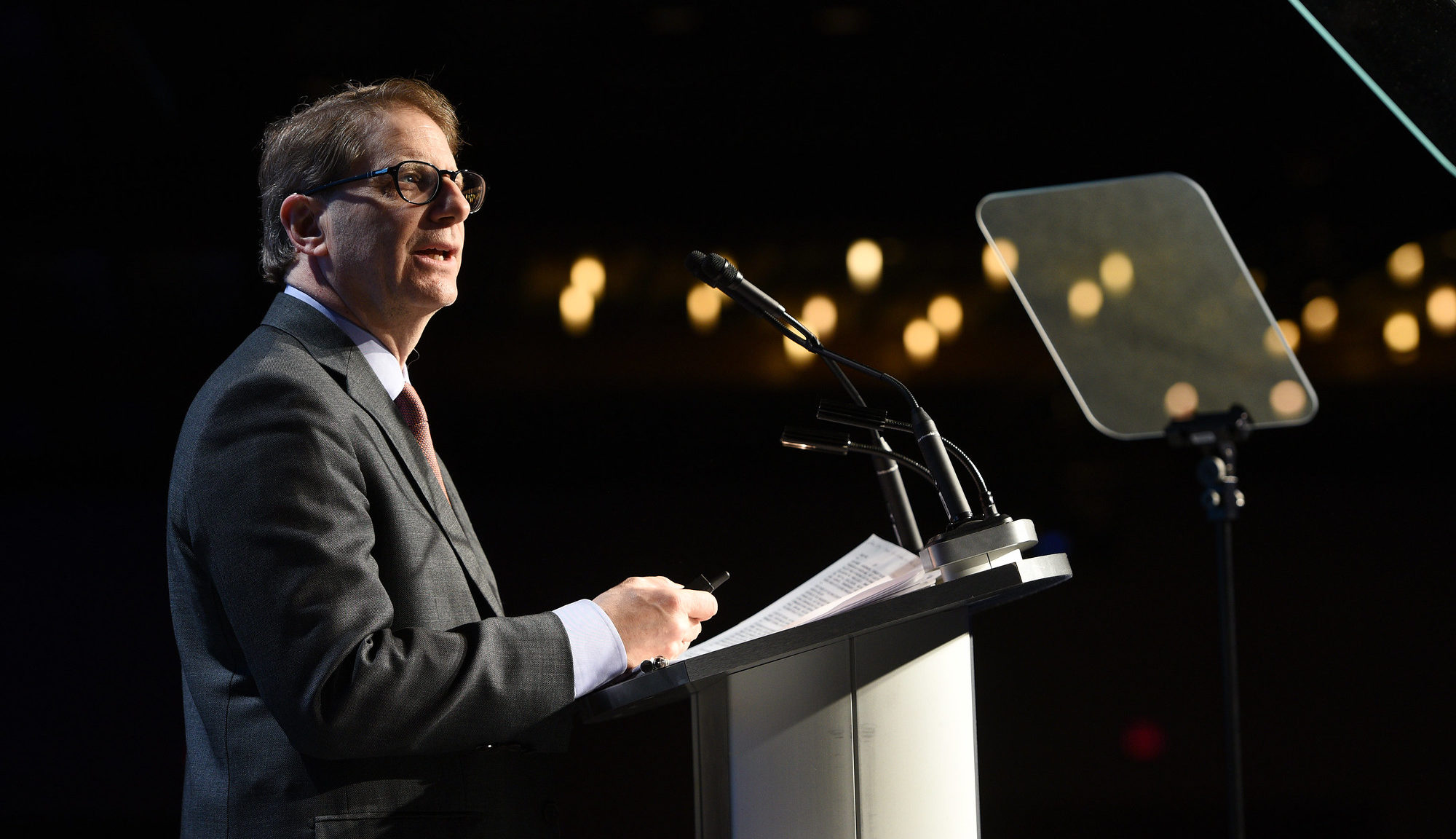
Why the future of work may be the most pressing issue of our time
Brave New Work Project | President's MessageWatch the Brave New Work conference livestream
In April, at the Public Policy Forum’s 32nd annual Testimonial Dinner, I made the case that the future of work may well be the most pressing issue of our times. We operate today within the paradox of the tightest labour markets in two generations existing alongside deep anxiety about whether people will continue to enjoy access to the kind of jobs and government backstop that provide decent wages and security.
The unbundling of tasks and benefits from jobs — and of jobs from organizations — challenges governments, employers, unions, learning institutions, NGOs and individuals themselves to think anew. Already we have felt the bumps in the road from people who feel left behind.
History shows us that the first Industrial Revolution wasn’t a smooth ride either. It featured a distressingly long period in which wages stagnated even while GDP per capita shot up. In other words, widening income inequality — with the fruits of technological progress accruing to an earlier version of the 1 percent.
Among some academics, this period is known as the Engels Pause. It gave Marx and Engels much fodder for their argument that capitalism was, to use a modern term, rigged against the working stiff. Eventually, the industrial revolution, helped by such policy changes as universal education, child labour laws and Bismarck’s social security programs spread wealth and produced a middle class. But not before communists and anarchists gained a toehold and roiled Europe for several generations.
Today’s technological revolution holds out tremendous promise.
It gives social and political voice to those previously unheard. It provides new biological treatments for serious afflictions. It creates whole new categories of jobs, such as data scientists, app developers and chief experience officers. Technology historically raises living standards and quality of life.
The trick is to make sure the opportunity side is available to all and that policy attenuates the downsides. Our decision-makers must beware that the capacity for social adaptability does not fall out of sync with the pace of innovation and economic change. As such, we urgently need to examine and modernize our public- and private-sector policy toolkits. As we learned in the 1800s and again in the mid-20th century, if policy is slow to respond, the resulting political and social damage can be long-lasting. We need to get at the universal education and child labour equivalents of today.
PPF isn’t standing still. As a think tank geared to applied policy, we have launched a massive three-year research-and-convening effort to keep apace with this difficult set of issues. We are calling our program Brave New Work: Getting Ready for Canada’s Jobs Future. Be part of it. Already, we have commissioned research studies of neglected questions, organized consultations with industry and youth groups, and are bringing together thinkers, doers and deciders to figure out the roles of responsibilities of different players. Our first two papers can be found here and here.
One of the areas we’re concentrating on is what we call “the messy middle.” However imperfect, our education system, from kindergarten to first full-time job, is just that — a system. Same with the panoply of savings and income support programs for retirement. Each of these phases features multiple programs, incentives and institutions that talk to each other. But the middle, where people in their 30s to 50s increasingly need help adjusting to change, remains relatively ad hoc and opaque. We need to turn the messy middle into a system, too.
Be part of this critical process, starting with our inaugural Brave New Work Conference on June 26 at the MaRS Discovery District in Toronto. It will bring together some of the best minds from Canada and abroad. We are preparing for a healthy clash of ideas about how the world of work is unfolding and what should be done about it. The day will include a case study from three angles of the GM closing in Oshawa. And we will release a comprehensive public opinion survey into the mindsets of the most economically anxious among us.
Watch the conference livestream
Watch the full EdTalk at the 2019 Testimonial Dinner & Awards





